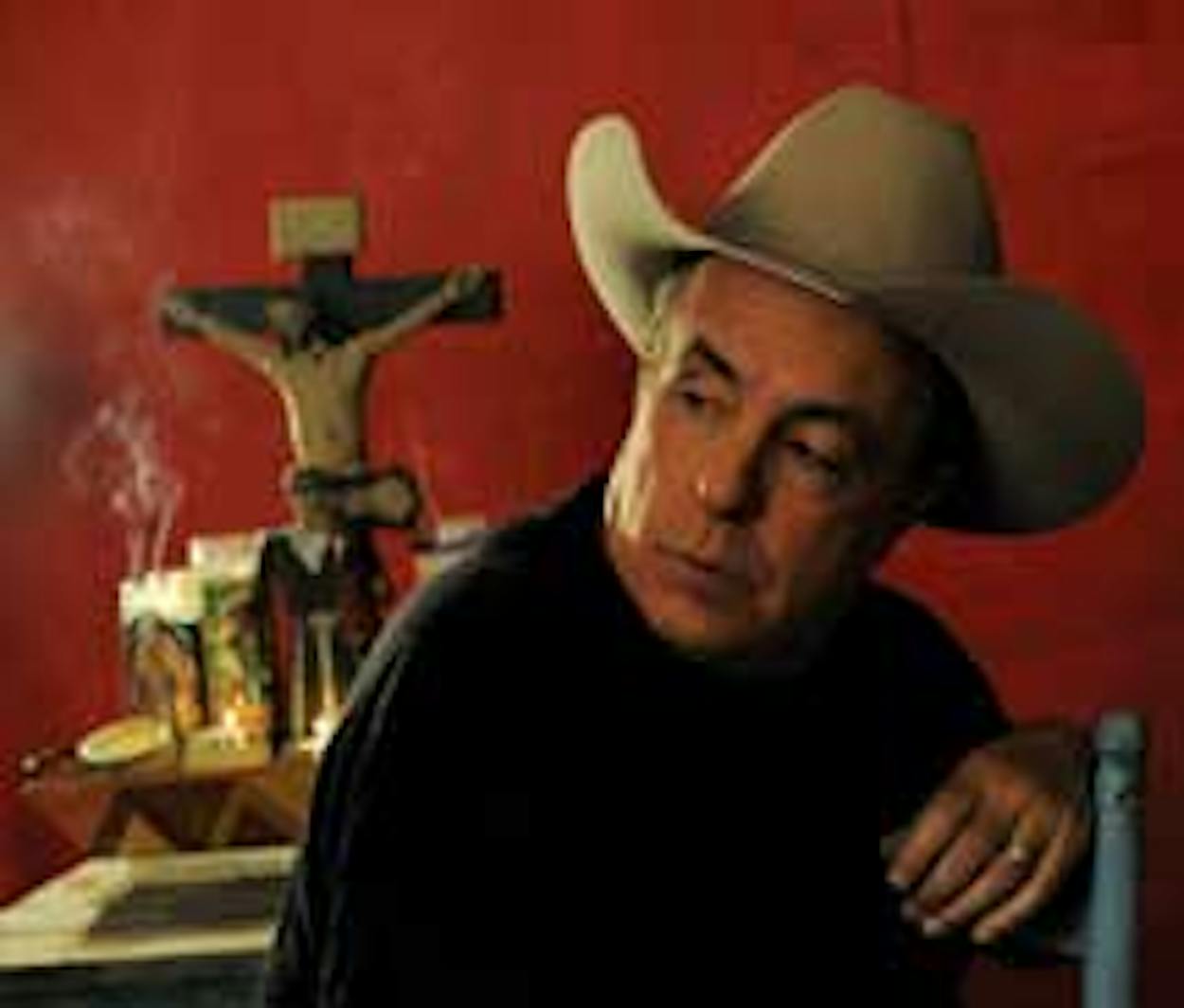Born in Los Angeles, the 56-year-old songwriter has lived everywhere from Austin and Brooklyn to Vancouver and war-torn Nigeria, but he now calls El Paso home. His ambitious, literary-minded writing has resulted in more than twenty albums; the latest, Blood and Candle Smoke (Shout Factory), was just released.
You set out to be a sociologist, then got a master’s degree in criminology. How did you get to where you are today? I was about to drop out of the University of California when I met this radical, left-wing criminologist. He ended up getting a gig in Nigeria to teach and asked me to go as a student teacher. He wanted a black American, but nobody wanted to go over there. I didn’t even know where it was! My eyes were opened in a lot of ways. I ended up reading more Graham Greene and playing guitar than I did getting into sociology. I couldn’t see myself in a university system the rest of my life, and when I came back, I ended up in Vancouver. I was walking by a bar when I heard somebody singing a Hank Williams song, and I thought, “Hell, I’ve always wanted to do that.” It took me six or eight months, but that’s eventually what I did. I was approaching thirty by the time I got into showbiz, as they say. But it’s worked well, because I’ve had a long, slow rise as a songwriter.
Are you a disciplined writer? I have to be. It’s rewarding, and I don’t have much else. I married a beautiful Swiss gal a year ago, and I told her, “The only way this is gonna survive is if you allow me to write for three or four hours. I don’t want to talk in the morning. I want to have a cup of coffee and get at it.” That’s what happened, and it allowed me to get this record written and work on a couple books.
Has the approach improved your work? Definitely. This record is by far the best thing I’ve done. I’ve never worked this way, where I wrote fifteen songs and discarded seven or eight and started over, or lived with a song for a year before deciding. To be honest, since I sort of have a rap as the best songwriter you never heard of, I knew the only way I was gonna inch up a little—if just to play to a larger audience—was to write a killer record. I also wanted to work in a new environment, in Tucson, with Craig Schumacher, who did a lot of stuff with Calexico and Iron and Wine. I really feel it’s a step up.
Are there other people doing what you do? I’ll be honest. I feel the art of songwriting is dying, as far as what makes the hair rise up off my skin. I get tired of telling people I haven’t heard anything I like out there, so I’ve been researching, listening to a lot of stuff. I really liked a lot of what Calexico did, or Iron and Wine, or Neko Case, and that led me to the studio in Tucson. Sonically I think things are real interesting, but I don’t hear any songs.
What influenced these new songs of yours? The record is sort of a cross between Orson Welles’s Touch of Evil and several Graham Greene novels, with some true crime and a lot of autobiography.
“Guadalupe” is full of sadness and longing. You seem to be looking for faith. Yes. I went to Catholic school for twelve years, and then I walked away from it forever. But there’s no walking away from the deeper mystical thing. I spent a lonely Christmas in Mexico City about six years ago; I was between relationships and drowning in self-pity. I ended up at midnight mass, where I saw two or three hundred poor Indians and Mexicans, their faces shining, being led past the shrine of the Virgin of Guadalupe. And I don’t know how to put my finger on it, except the song ends by saying, “Although they look the most needy, I’m the most needy here. I wish I had the hope that they had.” And I think I’ll leave it like that.







